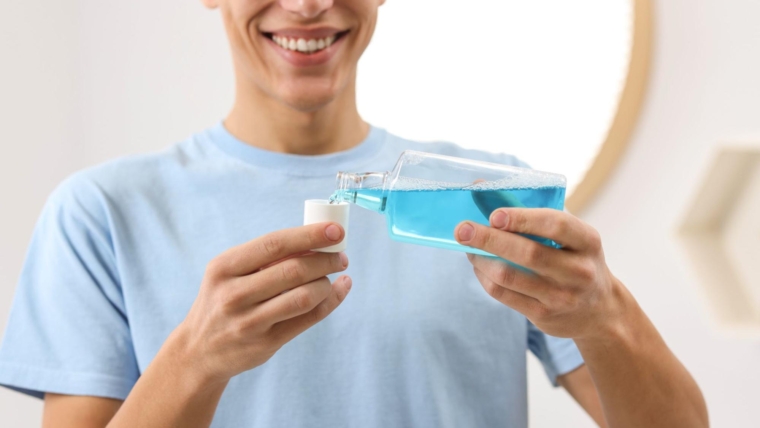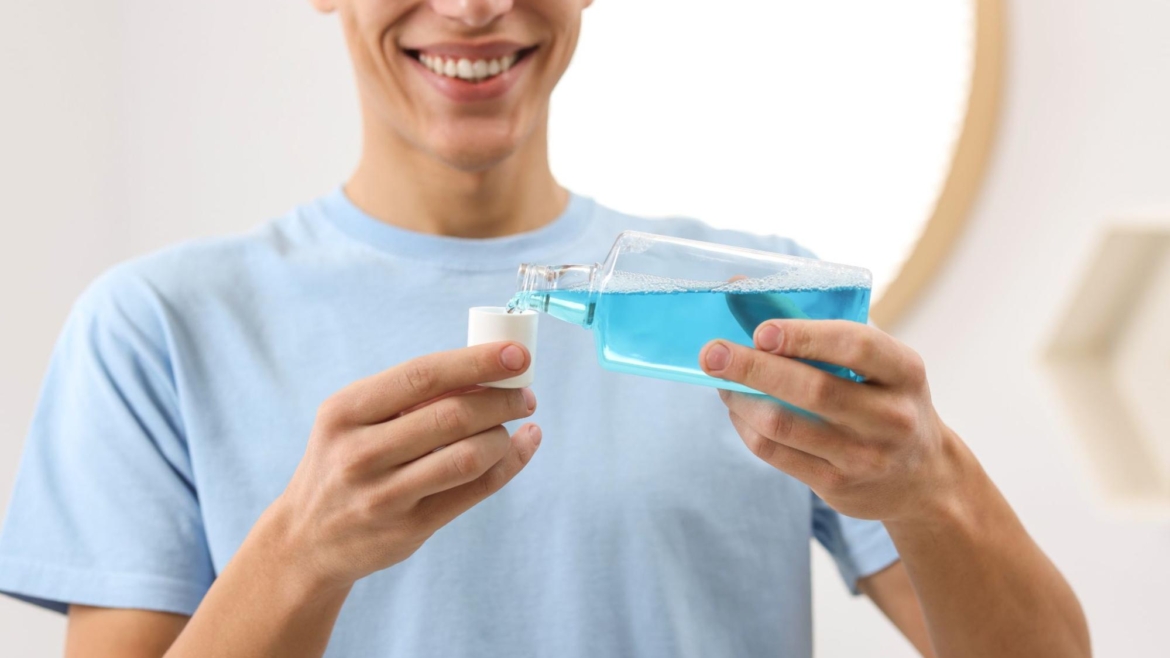
Composite bonding is a highly effective and minimally invasive cosmetic treatment that enhances the appearance of your smile by reshaping, rebuilding, or brightening your natural teeth. At Manor House Dental, we regularly provide composite bonding in Birmingham to patients looking for natural-looking results without the need for drilling or permanent alterations.
Following treatment, proper oral hygiene is essential to maintain the appearance and longevity of the bonding. One frequently asked question is:
“Can I use mouthwash if I have composite bonding?”
The answer is yes—mouthwash is safe to use with composite bonding. However, not all mouthwashes are created equal. Choosing the right formulation and using it correctly can make a significant difference in preserving the colour and condition of your bonded teeth.
Why Mouthwash Matters in Your Oral Hygiene Routine
Mouthwash serves several important purposes, including:
-
- Reducing plaque and bacteria
- Preventing gum disease
- Freshening breath
- Reaching areas that brushing and flossing might miss
When you have composite bonding, mouthwash can support gum health and hygiene around the bonded areas—but only if you select a product that is compatible with the materials used.
Is Mouthwash Safe for Bonded Teeth?
Yes—Provided You Choose the Right Type
Composite bonding resin is durable but not immune to external influences. Some mouthwashes contain ingredients that can dull the surface, accelerate staining, or contribute to wear over time.
Mouthwash is safe for bonded teeth when it:
-
- Is alcohol-free
- Has a neutral or low-abrasion formulation
- Contains fluoride to help protect enamel and surrounding teeth
- Is free from harsh whitening agents or peroxide
Using an appropriate mouthwash will not weaken the bonding material or cause it to detach from the tooth. However, products that are too strong or contain high alcohol content may dry the mouth or alter the surface texture of the composite.
Mouthwash Ingredients to Avoid with Composite Bonding
When choosing a mouthwash for bonded teeth, it’s best to avoid products that contain the following:
1. Alcohol (Ethanol)
Alcohol-based rinses can dry out the oral tissues and potentially affect the bonding interface over time. This may lead to slight dulling of the composite’s polished finish.
2. Hydrogen Peroxide or Whitening Agents
Mouthwashes marketed as whitening products often contain hydrogen peroxide or other bleaching compounds. These are ineffective on composite resin and may create uneven shading between bonded and non-bonded teeth.
3. High-Abrasive or Staining Dyes
Some coloured or tinted rinses may contribute to staining on the composite surface. Over time, this can compromise the aesthetics of your smile.
Recommended Mouthwash Features for Bonded Teeth
When shopping for mouthwash, look for products that are:
-
- Alcohol-free to maintain moisture and protect the composite resin
- pH-balanced to avoid acidic erosion
- Fluoride-containing to reinforce the adjacent natural enamel
- Gentle and non-foaming to prevent irritation or surface disruption
At Manor House Dental, we’re happy to recommend brands and products that are suitable for patients with composite bonding.
How to Use Mouthwash Effectively
-
- Rinse once or twice daily, ideally after brushing and flossing
- Use 10–15 ml of mouthwash and swish for at least 30 seconds
- Avoid eating or drinking for 30 minutes after rinsing
- Do not rinse with water immediately after using mouthwash, as this may reduce its effectiveness
For patients with composite bonding teeth in Birmingham, regular use of mouthwash as part of a complete hygiene routine can significantly reduce the risk of staining, decay and gum disease.
Additional Aftercare for Composite Bonding
In addition to mouthwash, maintaining your composite bonding involves:
-
- Brushing twice daily with a soft-bristled toothbrush and non-abrasive fluoride toothpaste
- Daily interdental cleaning with floss, interdental brushes, or a water flosser
- Avoiding highly pigmented foods and beverages (such as coffee, red wine and curry)
- Attending routine check-ups and hygiene appointments for professional cleaning and polishing
Our team at Manor House Dental offers long-term care for composite bonding patients to help ensure your smile remains healthy and attractive.
Why Patients Trust Manor House Dental for Composite Bonding in Birmingham

-
- Highly skilled cosmetic dentists with extensive experience in bonding techniques
- Personalised care and ongoing aftercare advice tailored to each patient
- In-depth consultations to educate patients about hygiene, maintenance and product selection
- Long-term monitoring and support to extend the lifespan of bonding treatments
Whether you are new to composite bonding or looking to maintain existing results, our Birmingham-based dental team is here to guide you.
Conclusion: Mouthwash Supports, Not Compromises, Composite Bonding
-
- Yes, mouthwash is safe to use with composite bonding.
- Select an alcohol-free, non-whitening and fluoride-containing formula.
- Regular use can help maintain oral health and extend the life of your bonding treatment.
- Combine with a full hygiene routine for the best results.
Have questions about what products are safe for your smile? Book a consultation with Manor House Dental—Birmingham’s composite bonding for expert advice and ongoing dental support.
Contact us today to learn more about composite bonding care or to schedule a hygiene appointment.


